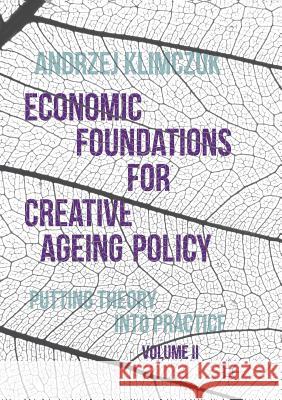Economic Foundations for Creative Ageing Policy, Volume II: Putting Theory Into Practice » książka
topmenu
Economic Foundations for Creative Ageing Policy, Volume II: Putting Theory Into Practice
ISBN-13: 9781349953868 / Angielski / Twarda / 2018 / 373 str.
Kategorie:
Kategorie BISAC:
Wydawca:
Palgrave MacMillan
Język:
Angielski
ISBN-13:
9781349953868
Rok wydania:
2018
Wydanie:
Softcover Repri
Ilość stron:
373
Waga:
0.49 kg
Wymiary:
21.01 x 14.81 x 2.13
Oprawa:
Twarda
Wolumenów:
01
Dodatkowe informacje:
Wydanie ilustrowane











